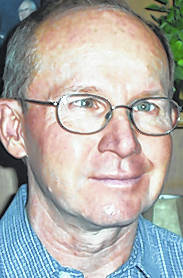What’s wrong with our schools? Why did the U.S. rank so far down the list compared to other developed countries when it comes to educational performance? And what can we do to improve?
In 2014, Pearson Education, a British media and education company, presented its annual global education performance report. The list was based on cognitive skills and educational attainment. The United States ranked 14th among the forty countries listed. In 2018, the U.S. ranked sixth in a study of the most educated countries. The U.S trailed the United Kingdom, South Korea, Israel, Japan and Canada.
Why is this so? The easy and obvious answer is money. We must not be spending enough educating our kids. We need to spend more. Then we’ll be number one again. But The U.S. is already number one. The United States spends more than any other developed nation on student education each year. This is according to an international survey released by the Organization for Economic Cooperation and Development. According to the survey, the U.S. spent over $11,000 per elementary student and more than $12,000 per high school student in 2010, more than any other country in the world. The amount is even greater today.
If it’s not the amount of funding for the schools, it must be the people at the schools. If we just get better trained and better quality teachers, our ranking will surely go up. The truth is there are many good teachers, and a few that are not so good in our schools. It has always been true. But that is the case with every occupation, not just teaching. If you think back to your school days, you probably had some great teachers, mostly good teachers, and few that were not that good. But, overall, today’s teachers are better trained and equipped.
So the decline in performance by U.S. students as compared to other countries can’t be easily blamed on the lack of funding, or be laid at the feet of teachers. I was reminded of this point while reading “Think Like a Freak,” a book by Steven Levitt and Stephen Dubner. (Remember, library cards are still free.) They say that often, when looking at a problem, we ask the wrong questions. Instead of, “What is wrong with our schools?” maybe the question should be “Why is our student’s performance lower than South Korea or Japan?” But it’s easier to blame lack of funding and teachers than look at the bigger cultural problems.
They write, “But a mountain of recent evidence suggests that teacher skill has less influence on a student’s performance than a completely different set of factors: namely, how much kids have learned from their parents, how hard they work at home, and whether the parents have instilled an appetite for education. If these home-based inputs are lacking, there is only so much a school can do. Schools have your kid for only seven hours a day, 180 days a year, or about 22 percent of the child’s waking hours. Nor is all that time devoted to learning, once you account for socializing and eating and getting to and from class. And for many kids, the first three or four years of life is all parents and no school.”
They continue, “But when serious people talk about education reform, they rarely talk about the family’s role in preparing children to succeed. So maybe, when we talk about why American kids aren’t doing so well, we should be talking less about schools and more about parents.”
I remember talking to my cousin, Retta Winstead, several years ago before she passed away. Retta was a retired school teacher. Talking about the frustration of being a teacher, she said, “I had them (students) from eight in the morning until three in the afternoon. I could control that. I couldn’t control what happened after that.”
And that’s the real world that teachers are facing. This real world is described by Levitt and Dubner when they write, “Anyone with a set of reproductive organs is free to create a child, no questions asked, and raise them as they see fit, so long as there are not visible bruises; and then turn that child over to the school system so the teachers can work their magic.”
They conclude, “Maybe we are asking too much of the schools and too little of our parents and kids.” Maybe we are.

